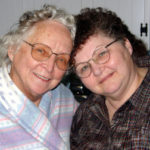We'd love to have you access this content. It's in our members-only area, but you're in luck: becoming a member is easy and it's free.
Already a Member?
Not a Member Yet?
Memoir interviewing is an integral piece of research. Although you may assume you can depend on your memory when you write your lifestories—memory isn’t always as reliable as you want it to be. Interviews with relevant family members and friends can supplement your memory and broaden the perspective of your memoir. Below are some notes […]
Memoir interviewing is an integral piece of research. Although you may assume you can depend on your memory when you write your lifestories—memory isn’t always as reliable as you want it to be. Interviews with relevant family members and friends can supplement your memory and broaden the perspective of your memoir.
Below are some notes on how to prepare for the best memoir interviewing you’ll ever undertake!
1) Select whom you will be memoir interviewing.
If your time is limited, or your family is large and offers many choices, it will be all the more important to identify a manageable number of knowledgeable relatives and friends to interview.
[Free Membership required to read more. See below. ]
This post is one of over 500 informative, well-written articles we have made available to you on this site.
We’ve contributed to your writing success; now we ask you to contribute to the expansion of the memoir conversation.
By reposting this article on your blog or website or reposting on your favorite social media, you will inform your fellow memoir writers of the programs and services—many for free like the blogs—that are available at TheMemoirNetwork.com.
Thanks for your generosity. You rock.


This article on interviewing and preparation was excellent. I am reminded of how important it is to keep in mind whether a kernel of information, planned or a spontaneous comment just may have value for the memoir even if not directly tied to the specific person being interviewed. Also, asking someone else to act as a prompter on your behalf to cull every worthy morsel is a great idea.
The Swedish film director Ingmar Bergman wrote someplace that he needed to know what sorts of flowers the characters who were arguing in the livingroom had planted along their cellar wall if he was going to shoot the scene well. He added that most often the audience did not have to see the flowers but he did. Writing is often that way—requiring much more info than goes into the story.
Keep writing.
What if everyone has passed and you are left with a puzzle to solve with many missing pieces?
Of course, such a situation poses a different challenge. First of all, be sure you create a memory list. This will give you access to much information you presently don’t know you know. It will open the floodgates of memory. Secondly, there are perhaps people you have dismissed such as nephews and nieces, cousins, children of cousins, children of neighbors who may know about your people and their feedback can prove helpful. Remember, they almost always start off by saying they don’t remember a thing. Start by asking factual questions: when did you live nearby? etc. Lastly, you may have to write a story that is decidedly a personal glimpse by one person: you. The story will not be as rounded as if you had other input, but if you feel the story remains important to share, this is one way to do it.